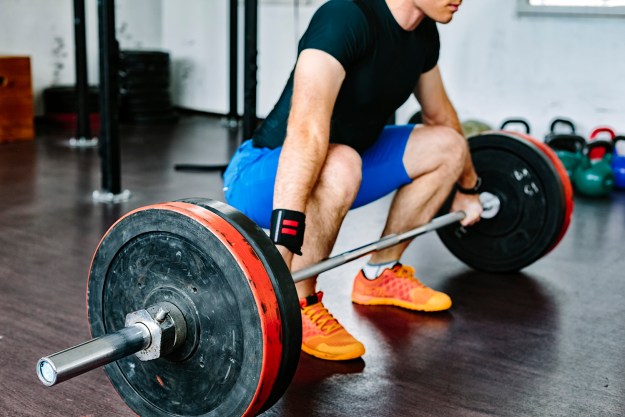Pre-workout meals help fuel your body with energy and nutrients, but have you ever thought about the foods you should eat after a workout? Workout recovery foods play a significant role in your fitness regime as they help replenish lost glycogen (the storage form of carbs that depletes when you’re exercising) and promote muscle gain.
Clif Bar & Company’s Registered Dieticians and Nutrition Strategy team members Jessica Chon and Casey Lewis explained, “Post-workout foods should include carbohydrates to help replenish your muscles’ energy stores and protein to help rebuild and repair your muscles.”
While you’ll always need protein and their amino acids, the amount will depend on the type of workout you’ve completed. Here’s a good rule of thumb for the type of post-workout food you’ll need for each type of workout:
- Strength training: More protein
- Aerobic exercise: More carbohydrates
- Strength and aerobic: 20 grams of protein plus simple and complex carbohydrates
To kick-start your exercise routine in 2022, Clif Bar’s registered dieticians recommend consuming the following workout recovery foods after an intense session in the gym.
Protein Bar
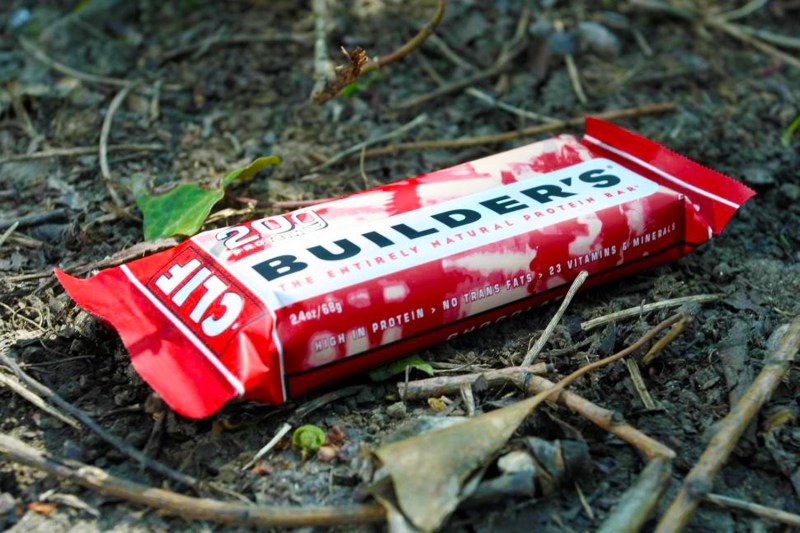
Yes, sometimes a protein bar is the perfect recovery fuel. But before reaching for the 50-gram cookie dough bar at the grocery store, heed Clif’s advice:
“The bar aisle can be confusing! If you want a recovery bar, be on the lookout for options that deliver carbohydrates and protein. Words like ‘high in protein’ and ‘complete protein’ are cues. If on the go and in need of a wholesome protein bar, Clif Builders and Clif Whey Protein Bar are great options. They start with energizing, organic, whole food ingredients and combine complete proteins with a mix of carbohydrates from sugar and oats.”
Clif Builders has 20 grams of protein per bar, while Clif Whey Protein delivers 14 grams (but fewer carbs!).
Is 14-20 grams of protein enough after a workout?
Yes, because you are not The Rock.
“Most studies show 20 grams of protein to be the amount most effective when recovering from a hard workout,” says the Clif team. “However, if you are older than 40, finished a complete, full-body workout, or are bigger than the average person, you may need up to 40 grams of protein after a workout to maximize recovery. The American College of Sports Medicine recommends consuming .3 grams of protein per kilogram of body weight.”
Grilled Chicken Sandwich
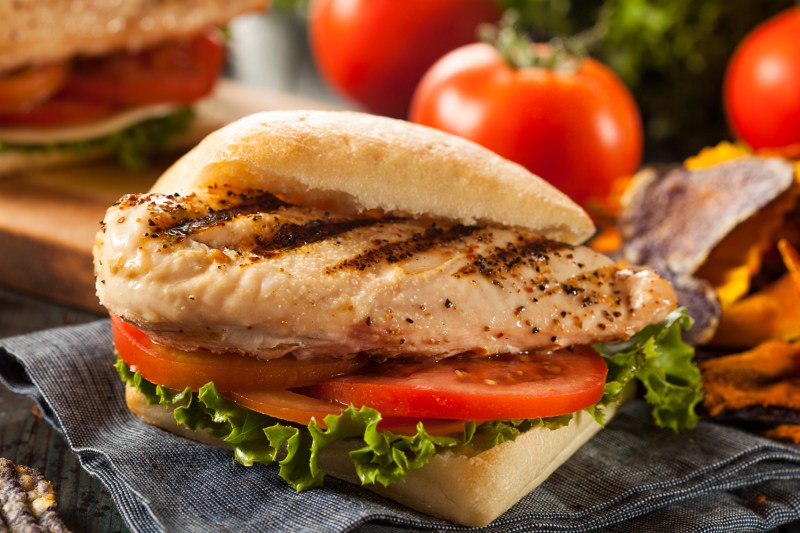
Another post-workout meal the Clif team recommends is a grilled chicken sandwich on a whole-grain bun. Add a side salad if you want to enjoy eating this delicious protein snack. The absolute best foods to eat to promote recovery after a workout are “nutrient-rich, whole food solutions,” Clif nutritionists say. Chicken, for instance, satisfies both the protein needs and the whole-food requirements.
“Soy and animal-based foods (meat, dairy, eggs, etc.) are considered ‘complete’ proteins, meaning that they provide all of the essential amino acids your body needs for health,” says the Clif team. “When it comes to recovery, whey protein, in particular, is seen as a great option because it has a high amount of the specific amino acid leucine. Plant-based proteins beyond soy can also be part of a recovery routine, but they’re considered ‘incomplete’ proteins because they lack one or more of the essential amino acids.
Translation: you need to eat more plant-based protein than animal protein to have the same recovery results.
Oats and Fruit
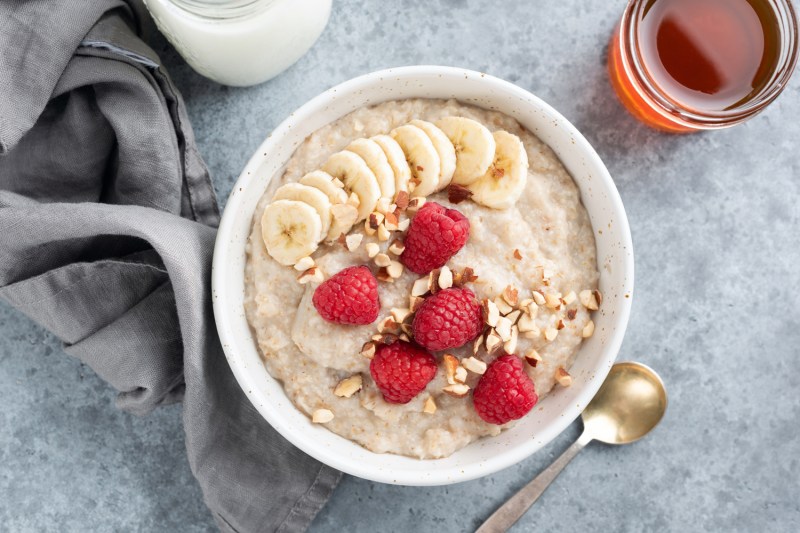
In the complex carb department, you don’t get much better than oats and fruits, especially when (per the equation above) you just completed a tough aerobic exercise like running or swimming.
Sweet Potatoes and Veggies
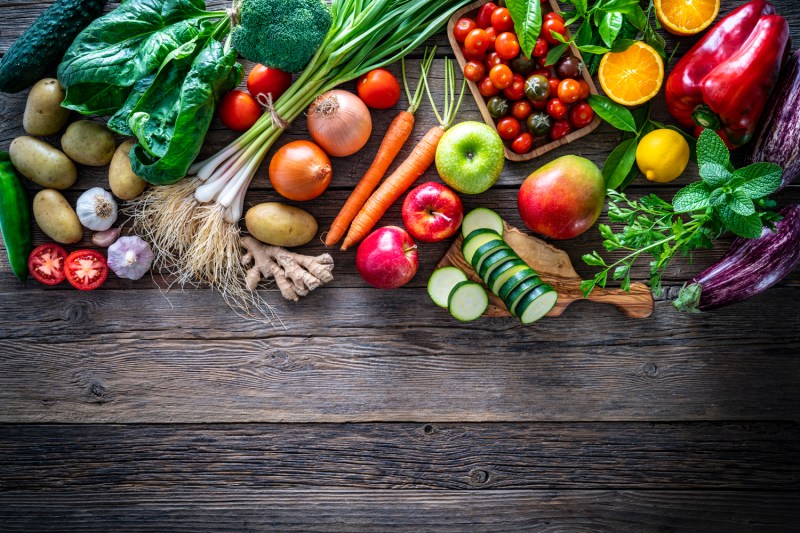
Other nutrient-dense, whole-food carbohydrates like sweet potatoes and veggies provide energy, vitamins, minerals and beneficial plant nutrients to help fuel your muscles, supporting recovery and overall health. If you’re training more than once a day, these foods should be essential to your diet along with consuming a recovery fuel 30 minutes after your workout and aiming for 20 to 30 grams of protein at each meal.
“The science suggests that this can help bolster recovery since your body’s ability to build muscle is elevated for 24 hours after a workout. Also, hydration is key. Active individuals should aim to replace 125-150% of the sweat they lost through their workout — so drink up.”
Editors' Recommendations
- The best stylish workout gear to help you stick to your 2023 fitness resolutions
- The best sandbags for workouts to build upper body strength
- The 11 Best Massage Guns for Your Post-Workout Recovery
- What to Eat After A Workout: 9 Meals to Try
- The Benefits of Watermelon as a Post-Workout Recovery Food


